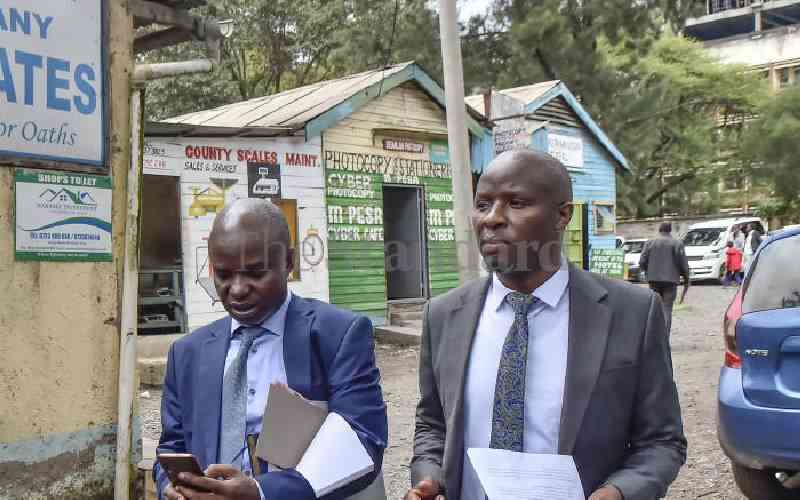By Jeffrey D. Sachs
Have a look at what happened around the world this past month. Australia’s heat wave filled headlines when temperatures reaching 45° Celsius disrupted the Australian Open tennis tournament. California’s extreme drought forced the governor to declare a state of emergency.
Major floods in Indonesia killed dozens and displaced tens of thousands. Beijing’s coal-induced smog forced people to stay in their homes, closed highways, and diverted flights. Such events are daily warnings to the world: wake up before it is too late.
We have entered the Age of Sustainable Development. Either we make peace with the planet, or we destroy our hard-won prosperity.
The choice seems obvious, but our actions speak louder than words. Humanity continues on a path of ruin, driven by short-term greed and ignorance.
Much (though not all) of the global environmental crisis stems from the world’s fossil-fuel-based energy system. More than 80 per cent of all primary energy in the world comes from coal, oil, and gas.
When these fossil fuels are burned, they emit carbon dioxide, which in turn changes the Earth’s climate. The basic physics has been known for more than a century.
Unfortunately, a few oil companies (ExxonMobil and Koch Industries are the most notorious) have devoted enormous resources to sowing confusion even where there is clear scientific consensus. But, in order to save the planet we know, and to preserve the world’s food supply and the well-being of future generations, there is no alternative to shifting to a new, low-carbon energy system.
There are three parts to this transition. The first is improved energy efficiency, meaning that we should use much less energy to achieve the same level of well-being.
For example, we can design our buildings to use sunlight and natural-air circulation so that they require far less commercial energy for heating, cooling, and ventilation.
Second, we need to shift to solar, wind, hydro, nuclear, geothermal, and other forms of energy that are not based on fossil fuels. The technology exists to use these alternatives safely, affordably, and at a scale large enough to replace almost all of the coal, and much of the oil, that we use today. Only natural gas (the cleanest-burning fossil fuel) would remain a significant source of energy by mid-century.
Finally, to the extent that we continue to rely on fossil fuels, we must capture the resulting CO2 emissions at power plants before they escape into the atmosphere. The captured CO2 would then be injected underground or under the ocean floor for safe long-term storage. Carbon capture and sequestration (CCS) is already being used successfully on a very small scale (mainly to enhance oil recovery in depleted wells).
If (and only if) it proves successful for large-scale use, coal-dependent countries like China, India, and the United States could continue to use their reserves.
American politicians have proved to be incapable of designing policies to shift the US to low-carbon energy use. Such policies would include a rising tax on CO2 emissions, large-scale research-and-development efforts in low-carbon technologies, a shift to electric vehicles, and regulations to phase out all coal-fired power plants except those that install CCS.
Yet politicians are pursuing none of these policies adequately. Climate-change foes have spent billions of dollars to influence policymakers, support election campaigns by defenders of fossil fuels, and defeat candidates who dare to promote clean energy.
Stay informed. Subscribe to our newsletter
The Republican Party as a whole attracts massive financial support from opponents of decarbonization, and these donors aggressively fight even the smallest step toward renewable energy. For their part, many Democratic members of the US Congress are also in the pro-fossil-fuel camp.
The reason all of this matters is that the path to deep decarbonization is open to us. Yet time is very short.
The world needs to stop building new coal-fired power plants (except those that implement CCS) and to shift to low-carbon electricity.
Mr Sachs, Professor of Sustainable Development and Director of the Earth Institute at Columbia University (c) Project Syndicate 2014
www.project-syndicate.org
 The Standard Group Plc is a
multi-media organization with investments in media platforms spanning newspaper
print operations, television, radio broadcasting, digital and online services. The
Standard Group is recognized as a leading multi-media house in Kenya with a key
influence in matters of national and international interest.
The Standard Group Plc is a
multi-media organization with investments in media platforms spanning newspaper
print operations, television, radio broadcasting, digital and online services. The
Standard Group is recognized as a leading multi-media house in Kenya with a key
influence in matters of national and international interest.
 The Standard Group Plc is a
multi-media organization with investments in media platforms spanning newspaper
print operations, television, radio broadcasting, digital and online services. The
Standard Group is recognized as a leading multi-media house in Kenya with a key
influence in matters of national and international interest.
The Standard Group Plc is a
multi-media organization with investments in media platforms spanning newspaper
print operations, television, radio broadcasting, digital and online services. The
Standard Group is recognized as a leading multi-media house in Kenya with a key
influence in matters of national and international interest.








